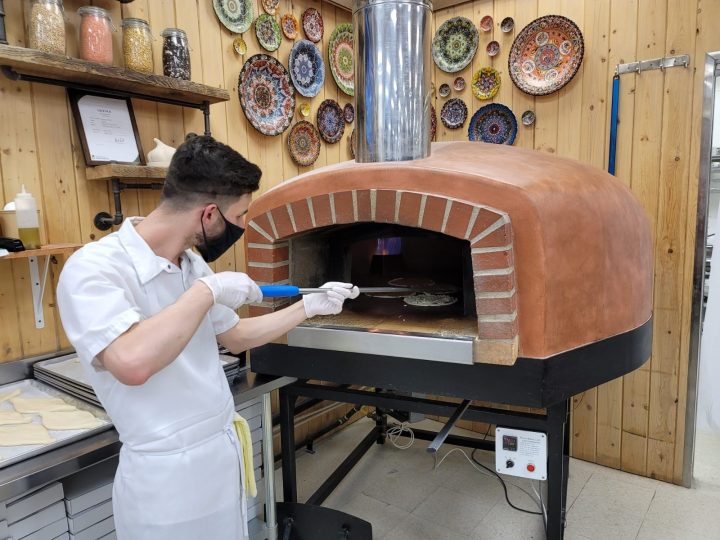It’s been five years since Syrian refugees first arrived in Canada. Over 1,000 Syrian refugees have moved to Saskatoon since then.

Assaf Alhamade lived in Syria and then Lebanon for five years. He remembers how special it was when he found out he could move to Canada in 2017.
“When they phoned me I was very, very surprised and happy. Everything would be different,” Alhamade said.
There was a lot for him, his wife and two daughters to learn.
The culture was completely different, but for Alhamade he was at least able to find work. Before moving to Canada, he paved stone. Shortly after moving to Saskatoon, he started working at Saskatoon Paving Stone.
“Many things are different here, but stone is still stone,” Alhamade said.
With hard work and community support, the Alhamades have been able to establish a life in Saskatoon.
The Open Door Society helped them integrate into life in Canada. They also introduced them to the Stark family.
Sheri Stark said her family decided to volunteer with the Open Door Society in 2017 after going on vacation to a new country. She said they felt like outsiders and were uncomfortable at times.
“There’s probably a lot of people in Saskatoon feeling this way,” Stark said about her decision to volunteer with refugees.

Get breaking National news
“I’ve lived in Saskatoon my whole life and thought volunteering was something I could easily do for people who are new to Saskatoon and I could make them feel welcome.”
She said the Alhamades have daughters that are similar in age to hers, but said it was crazy how different their lives were. Stark has seen the Alhamades find a lot of success in the past couple of years, and says it has been rewarding to help them adjust to the culture here.
“He always wants to do what’s best for him and his family and he amazes us at how much of a hard working gentleman he is,” she said.
Alhamade has even been able to open a Middle Eastern grocery store last summer in Saskatoon called Al Rabih Brothers Market. He said he saw the opportunity when he noticed an increased demand for something like it in the city.
“In Saskatoon, we have a big community of Syrians and then also we have an Arabic community,” Alhamade said.
Like many things for Alhamade living in Canada, opening a business during a pandemic has been a challenge. However, he said things have been going well.
Tareq Nila, 23, has also been able to find success in Saskatoon.
He was living in Jordan for four years before moving to Saskatoon in 2016. He moved not knowing how to speak English and said it was scary moving somewhere completely different.
Despite challenges, Nila has adjusted to the Canadian lifestyle. He has been working at a market where he has learned how to bake.
This job has inspired him to have some goals for the future.
“In the future I hope I can own my own restaurant. I love cooking,” Nila said.
The greatest moment for Nila was when he was reunited with his mom a year and a half ago. He hadn’t seen her for five years even before moving to Canada, so he was extremely excited when she was sponsored to join him here.
“It’s really, really nice. It feels we’re safe and we’re living good,” he said.
Both Alhamade and Nila are grateful the community has welcomed them with open arms and look forward to future opportunities for their families in Saskatoon.
Saskatoon Open Door Society CEO Ali Abukar said there are some people with an ‘anti-immigrant’ mindset, but for the most part, people are supportive of newcomers.
“They’re not here to take away or threaten,” Abukar said.
“They’re here to participate, contribute and play their role and also show their gratitude.”




Comments
Want to discuss? Please read our Commenting Policy first.